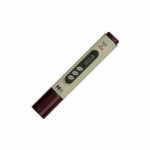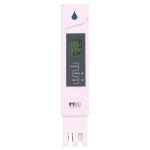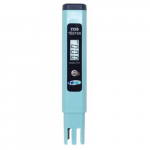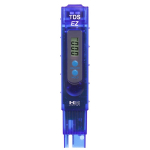- Show results for
- Share
What is TDS Tester and What Does It Measure?
Resource Description

TDS (Total Dissolved Solids) Tester is a that measures the amount of total dissolved solids in water.
For instance, when the rain falls, its water dissolves minerals that are in the rocks and then passes through the soil. Dissolved minerals remain in the water at different concentrations levels. The most common minerals that are observed in the water are calcium, magnesium, and sodium.
TDS meters can include different functions. For example, basic models determine only the amount of dissolved solids in solutions when developed TDS Testers can measure from the salinity to temperature and more.
|
|

A plenty amount of dissolved solids and minerals in water means a high TDS level. When solids and minerals are constant in the water, they may appear in pipes and other plumbing appliances that may be damaged. If you know the TDS level, you will understand whether you need to change some plumbing details or install filters.
TDS meters don’t measure pollutants, that is why it won’t determine if the water is healthy to be used. They measure the amount of total dissolved solids in your water. They don’t identify what the solids exactly are and whether they are harmful or not.
For instance, the TDS with a high level may cause its spike when it determines minerals such as potassium, magnesium, and calcium if it doesn’t have a reading of harmful minerals.
You could have a low TDS level with several harmful pollutants and water may have a number of heavy metals such as lead or pesticides and other harmful contaminants. That is why water quality is not determined only by the TDS meter.
|
|
How is TDS Measured
TDS is measured as a quantity of water in milligrams per liter (mg/L) or as this unit also know parts per million (ppm). The unsafe TDS level is higher than 1000 ppm and when it increases up to 2000 ppm the filtration will be unable.
Testing the TDS of the water with the TDS meter is the simplest way to determine dissolved solids. For instance, when the TDS meter measures 100 ppm, it means that from 1 million particles, 100 are dissolved solids and 999,900 are water molecules.
Note that TDS meters don’t determine what types of TDS are in the water. However, it is crucial to know the quality of water you observe. So, in addition to TDS meters, it is recommended to use equipment that allows determining TDS in water. The plumbing equipment and supplies should also be tested to maintain water quality.














